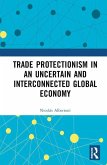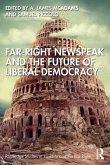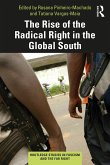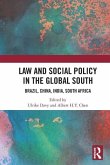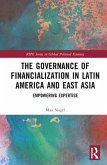Shaping Nations and Markets employs a mixed methods approach to contend that economic ideas, organization of domestic interests and their economic power, asymmetries of information, and political institutions do not sufficiently explain the formation of national interests in processes of trade liberalization.
The author proposes that something is missing-identity capital-which also empowers economic sectors that share either liberalizing or protectionist interests. Identity capital is an economic sector's contribution to the stability of a national identity narrative; it correlates with the degree to which the workforce of any sector represents the dominant conception of national identity. Identity capital creates political power asymmetries among those sectors and impacts the formation of populist movements in both developed and developing states. This book offers a theoretical framework to unpack national identity, trade liberalization, nationalist-populism, domesticpolitics, and globalization. The author argues that the key for identifying whether liberalizing or protectionist coalitions prevail in trade negotiations is identity capital. He offers a comparison of the three largest contemporary, federal, multicultural democracies: Brazil, India, and the United States, from the Doha Development Round of the World Trade Organization (WTO) in 2001, to the rise of populism in these countries in recent years.
This book will be of great interest to graduate students and scholars of international relations, international studies, political science, comparative politics, and economic sociology.
The author proposes that something is missing-identity capital-which also empowers economic sectors that share either liberalizing or protectionist interests. Identity capital is an economic sector's contribution to the stability of a national identity narrative; it correlates with the degree to which the workforce of any sector represents the dominant conception of national identity. Identity capital creates political power asymmetries among those sectors and impacts the formation of populist movements in both developed and developing states. This book offers a theoretical framework to unpack national identity, trade liberalization, nationalist-populism, domesticpolitics, and globalization. The author argues that the key for identifying whether liberalizing or protectionist coalitions prevail in trade negotiations is identity capital. He offers a comparison of the three largest contemporary, federal, multicultural democracies: Brazil, India, and the United States, from the Doha Development Round of the World Trade Organization (WTO) in 2001, to the rise of populism in these countries in recent years.
This book will be of great interest to graduate students and scholars of international relations, international studies, political science, comparative politics, and economic sociology.
"In a world disenchanted with the rationality of globalization, this book reminds us that who we are (or whom we assume to be) helps shape our interests and the distribution of power within and between states. This is a well-written and important contribution."
Miguel A. Centeno, Princeton University, USA
"In this highly original book, Rodrigues Vieira introduces the concept of 'identity capital' to explain whether liberalizing or protectionist coalitions win out in trade negotiations. This book offers a very welcome addition to the growing literature that seeks to understand liberalization and protectionism in both developed and developing countries."
Erik Voeten, Georgetown University, USA
"The main contribution of the book lies in the concept of identity capital, which opens the doors for making cross-continental comparisons like the ones the author does between Brazil, India, and the US. With this, Shaping Nations and Markets subverts the traditional area studies and comparative politics divisions. A must-read."
Laurence Whitehead, Nuffield College, University of Oxford, UK
Miguel A. Centeno, Princeton University, USA
"In this highly original book, Rodrigues Vieira introduces the concept of 'identity capital' to explain whether liberalizing or protectionist coalitions win out in trade negotiations. This book offers a very welcome addition to the growing literature that seeks to understand liberalization and protectionism in both developed and developing countries."
Erik Voeten, Georgetown University, USA
"The main contribution of the book lies in the concept of identity capital, which opens the doors for making cross-continental comparisons like the ones the author does between Brazil, India, and the US. With this, Shaping Nations and Markets subverts the traditional area studies and comparative politics divisions. A must-read."
Laurence Whitehead, Nuffield College, University of Oxford, UK


